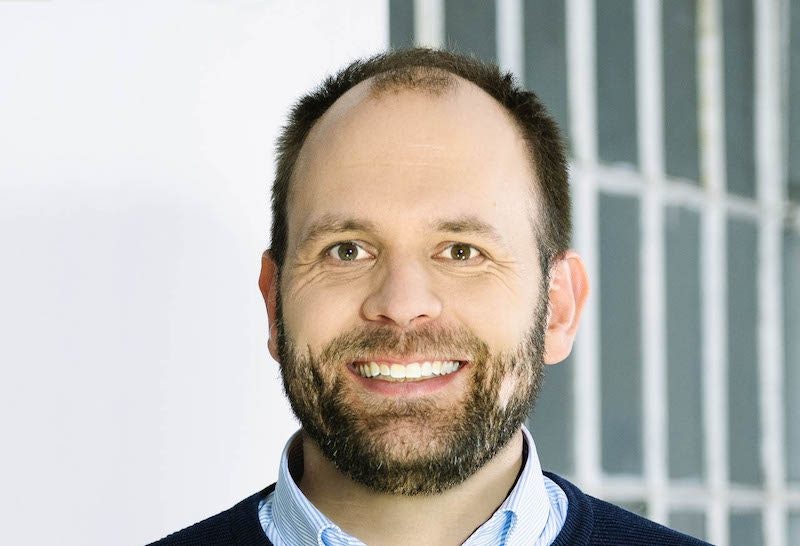When German healthtech Aidhere announced in May that it could no longer afford to keep the lights on, people took notice.
Its obesity treatment app, Zanadio, was the top-performing digital health product on the DiGA directory — a platform of digital health therapies and apps that are approved to be prescribed by doctors in Germany — when the medical regulator last reported prescription numbers in September 2022. Investors tipped the startup for big things and in April it had a “double-digit [million]” term sheet on the table.
Then a potential investor got cold feet, the deal fell apart and Aidhere was forced to file for insolvency. The problem: a gaping hole in its finances caused by protracted price negotiations with health insurers that left the company owing millions of euros. And it isn’t the first startup to find itself scuppered by repayments since DiGA was introduced in 2019.
The promise of DiGA
The DiGA law allows doctors to prescribe 12-week courses of app and web-based therapy to any of the 73m people using public health insurance in Germany, with the state footing the bill. It means digital health startups can get their apps in front of people without having to sell to each of the 110 public health insurers in Germany separately — something most just don’t have the resources to do.
When it was passed it was lauded as a catalyst for the digital transformation of the country’s healthcare system. But it hasn’t taken off in the way people hoped it would, and the 203k DiGA treatments prescribed by September 2022 pale in comparison to the 440m regular prescriptions doled out each year in Germany.
“A lot of people assumed that growth would be higher by an order of magnitude,” says Hannes Klöpper, founder and CEO of mental health app HelloBetter — which has six products on DiGA. “If prices and prescription numbers stay the same, a lot of companies will struggle to make it work.”

Priced into insolvency
Price negotiations with the insurers' representative body begin after a company has been listed on the directory for 12 months — during which time a startup can choose how much it charges. At the end of that process startups need to pay back the difference between their initial price and the negotiated price for all the prescriptions they’ve sold after that first year.
While every startup eventually agrees to a price cut, most negotiations are finalised in less than a year and drop between 50-60%, according to a number of DiGA startup founders.
That wasn’t the case for Aidhere. Negotiations over the price of Zanadio dragged on for 18 months, after which the startup was forced to cut its price from €500 to €218. It left an €8m hole in its finances. Healthtech Newsenselab went through something similar, and also filed for bankruptcy.
The problem is that the arbitration board — which steps in to make a final decision on pricing when insurers and startups can’t agree — doesn’t take into account the medical benefit of a DiGA, says Aidhere’s founder Henrik Emmert.

“If you have products and they all end up within €50 of each other, that’s mighty strange,” Emmert says. All 14 DiGAs that have gone through negotiations with insurers have ended up being priced at around €200 — and cover a wide range of health conditions from depression to vaginismus to chronic pain.
“There should be products that are priced at €100 and others that are priced at €500 — because there should be a connection between price and benefit,” he tells Sifted.
Sifted has reached out to the health insurer representative body for comment.
'Nobody knows about you'
As well as concerns over price points, several other hurdles stand in the way of German healthtechs making the most of DiGA.
On paper the law gives digital health startups unfettered access to Europe’s largest healthcare market. But getting doctors to prescribe DiGAs — and patients to ask for them — is a huge challenge, founders and investors tell Sifted. By November 2022, just a third of doctors had prescribed a DiGA and roughly the same amount said they wouldn’t prescribe a digital therapy.
“For startups it’s extremely challenging to build a big enough sales setup that can reach all doctors and psychotherapists across the country and inform them about our products,” says Adham Kassab, CEO of mental health startup Selfapy, which has five DiGAs.
While DiGAs can be marketed directly to patients — unlike with traditional drugs — big brand awareness campaigns are also often out of reach of startups’ shoestring budgets.
“Even once you’re listed on the DiGA directory (the online library which houses the digital health apps) nobody knows about you,” says Michelle Olschewski, chief operating officer at Vivira, an app that helps people with musculoskeletal disorders.

To get around that some have partnered with big pharma companies to get their products in front of patients. Selfapy joined forces with Pfizer when it launched its chronic pain management app on DiGA, for example, and HelloBetter marketed a similar product with the help of Ratiopharm.
But more needs to be done, and policymakers need to step up, says Klöpper. “If the ministry of health wants DiGAs to be part of addressing future healthcare problems, they have a responsibility. They could run a patient awareness campaign similar to the pro-vaccination campaign.”
A spokesperson from German medical regulator BfArM tells Sifted: "The commercialisation of DiGAs themselves is a task for the respective manufacturers and BfArM cannot directly contribute due to its neutral role.”
Insurer roadblocks
Even when DiGAs are prescribed to patients, about half don’t get used, according to a number of founders with products on the platform, meaning startups don’t get reimbursed. Part of that is down to how long it takes for patients to access a digital therapy app once a doctor’s prescribed it.
Prescriptions are paper slips, which patients need to take a photo of and upload to their health insurance app. The health insurer then issues a 16-digit code which unlocks access to the app — which in most cases is sent by post and can take weeks to come through.
Insurers see DiGAs as a threat and are putting stones in our way
On top of that, when patients are redeeming their code, insurers can encourage them not to use DiGAs, and instead often pitch their own digital therapy solutions, which are cheaper for them to supply, says Olschewski. “Insurers see DiGAs as a threat and are putting stones in our way.”
Insurer roadblocks were part of the reason Mika — a platform that supports people being treated for cancer — removed its app from the DiGA directory, founder and CEO Gandolf Finke tells Sifted. The company now sells its products to pharmaceutical companies instead.
There are signs of progress, however. In June, health insurers were warned by BfArM against offering patients alternative treatment if a doctor has prescribed a DiGA, but founders are sceptical about how much impact this will have.
VCs are cautious of DiGAs
Even for startups that do get prescribed and are used by patients, the VC cash they often need to scale can be hard to come by.
Munich-based healthtech-focused VC YZR doesn’t tend to invest in startups that rely on DiGA for their revenue, says founding partner Reinhard Meier. YZR is more interested in startups that aggregate several DiGA products, though Meier is still sceptical about scalability. DiGA startups spend so much time and resources focusing on one country and one product that they’re not thinking about scaling broadly across geographies, he adds.
The low level of adoption across the German healthcare system also means it’s difficult to see them scaling to the levels VCs are looking for when they back a startup, says Hana Besbes, investor at German healthtech VC Heal Capital. None of the four partners at Heal have backed a DiGA startup, she adds.
Investor sentiment on DiGA isn’t very positive because of regulatory risks in this new, highly regulated environment
The regulatory framework that DiGAs need to navigate makes VCs wary. Startups have to prove their digital therapy works clinically during their 12 months of preliminary listing — and this doesn’t come cheap. According to founders it can cost upwards of €1m to go through clinical trials, and BfArM can delist a product if it doesn’t meet its standards. In March, a new draft law was also proposed that would link reimbursement more closely to app usage.
“Investor sentiment on DiGA isn’t very positive because of regulatory risks in this new, highly regulated environment and the fact there’s not yet been a break-though commercial success that’s made hundreds of millions or billions [with a DiGA product],” says Emmert.
That said, he thinks there’s still potential. “It’s a marathon not a sprint, and there is resistance from stakeholders — but that happens with any change in healthcare,” he says.
The new draft law also proposes digitising prescriptions, which could go some way to making DiGAs more accessible. The framework is also attracting attention in other markets.
France, Austria and Belgium have introduced lookalikes, and while they all run on separate regulatory landscapes, in time that could bring with it opportunities for German digital health startups to expand. “We’re having conversations with investors right now about raising additional funds to go to France,” says HelloBetter’s Klöpper.
In Germany, a period of market consolidation is on the horizon, where smaller, single-product DiGAs are rolled up into platforms of multiple digital therapies, reducing customer acquisition costs and making marketing more efficient. That’s good news, investors tell Sifted, saying it's far easier to build a case to back these sorts of business models.


